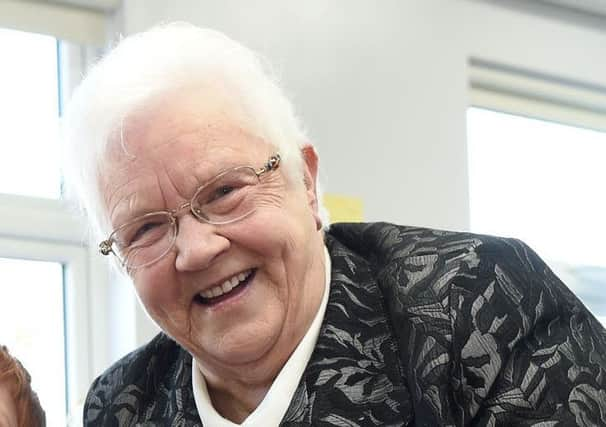Integrated education: Public do not want segregation, says Baroness Blood


As the Assembly election approaches, it’s a challenge politicians must not ignore.
The recent survey by independent research company LucidTalk, as reported in today’s paper, shows clear evidence of frustration with the schools system in Northern Ireland, in the face of sluggish progress at Stormont in improving processes and structures.
Advertisement
Hide AdAdvertisement
Hide AdWhen participants were asked what three words or expressions came to mind to describe the NI education system, responses included: “entrenching sectarianism”; “divisive”; wasteful; and “a rudderless, vision-less political football.”
A glance at the education landscape reveals what is prompting these opinions. The NI schools system has long been in a fragile state with financial pressures, continuing changes to the curriculum and increased workloads.
We have not seen effective action to address the gulf between our “winners” in the exam stakes and those left behind. Yes, we have a percentage of high-achieving students but we also have a serious “tail” of underachievement.
And even after years of uncertainty and stress for teachers, pupils and parents, Stormont has failed to properly address the selection issue.
Advertisement
Hide AdAdvertisement
Hide AdMoreover, the segregated nature of education provision means that the majority of our children and young people of school age continue to be educated in a single-identity setting.
Repeated polls, of parents, business leaders and the wider public, show a common view that the NI education system is uneconomical and dysfunctional. Stormont’s own Public Accounts Committee has questioned the Department of Education’s planning system and its use of unreliable data. It seems we don’t know how many surplus places there are in NI schools but there are certainly plenty, spread across multiple school sectors.
Duplicating provision represents a glaring failure to address reality and adjust the service to get best value for our young people. Remember that this divided structure brings additional costs in areas such as school transport and teacher training. It’s time to question the returns on that expenditure.
A failure to address this issue by extension fails the taxpayers who fund the system, the schools struggling to function within it and, most crucially, the young people whose future will be shaped by it. If political leaders cannot address the problems then it will surely be time to take politics out of education and turn to an independent commission.
Advertisement
Hide AdAdvertisement
Hide AdThis would please the majority of those questioned by LucidTalk who have sent a clear message that the public would like to see politics and vested interests taken out of the education system.
More than two thirds of respondents think that there should be an independent planning authority for education similar to the Housing Executive, and nearly two thirds of those questioned said they would like to see an independent review of the current education system in Northern Ireland.
The health service in Northern Ireland has been reviewed by an objective expert.
Now a cross-party body is working to put political difference aside and agree proposals to improve the service and benefit all users – a development which is to be commended and welcomed.
Advertisement
Hide AdAdvertisement
Hide AdSo if we have looked to outside advisors to assess our health service (and in the past to reform policing here) – surely the education of our children deserves the same level of scrutiny and the same vision of a service which offers the best deal for everyone?